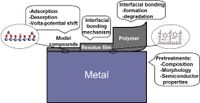Our research seeks to enhance real-time detection of chemical contaminants in biosensing, food safety, and water quality monitoring by developing advanced electrochemical sensing technologies using Electrochemical Impedance Spectroscopy (EIS). Traditional methods face high costs and limited real-time capabilities, which we aim to overcome by improving EIS with better electrode material and design.
EIS measures impedance responses to reveal chemical processes at the electrode-electrolyte interface, but distinguishing contaminants can be difficult due to overlapping phenomena. Our approach involves optimizing material composition, electrode shape, and integrating artificial intelligence (AI) to refine data analysis, improving detection limits and selectivity. This will create a versatile, efficient, and scalable sensing platform to advance applications in various industries.
